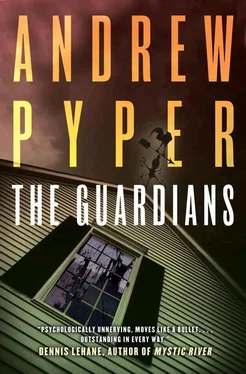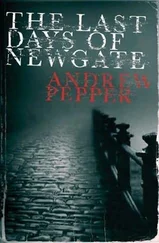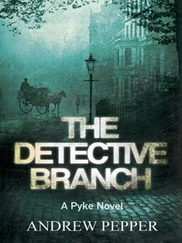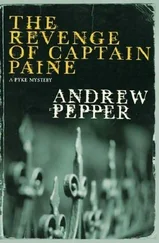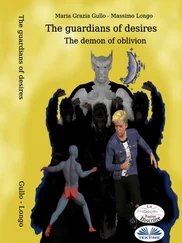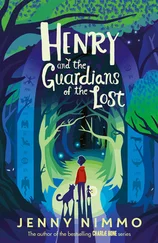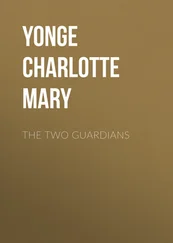Andrew Pyper - The Guardians
Здесь есть возможность читать онлайн «Andrew Pyper - The Guardians» весь текст электронной книги совершенно бесплатно (целиком полную версию без сокращений). В некоторых случаях можно слушать аудио, скачать через торрент в формате fb2 и присутствует краткое содержание. Жанр: Старинная литература, на английском языке. Описание произведения, (предисловие) а так же отзывы посетителей доступны на портале библиотеки ЛибКат.
- Название:The Guardians
- Автор:
- Жанр:
- Год:неизвестен
- ISBN:нет данных
- Рейтинг книги:3 / 5. Голосов: 1
-
Избранное:Добавить в избранное
- Отзывы:
-
Ваша оценка:
- 60
- 1
- 2
- 3
- 4
- 5
The Guardians: краткое содержание, описание и аннотация
Предлагаем к чтению аннотацию, описание, краткое содержание или предисловие (зависит от того, что написал сам автор книги «The Guardians»). Если вы не нашли необходимую информацию о книге — напишите в комментариях, мы постараемся отыскать её.
The Guardians — читать онлайн бесплатно полную книгу (весь текст) целиком
Ниже представлен текст книги, разбитый по страницам. Система сохранения места последней прочитанной страницы, позволяет с удобством читать онлайн бесплатно книгу «The Guardians», без необходимости каждый раз заново искать на чём Вы остановились. Поставьте закладку, и сможете в любой момент перейти на страницу, на которой закончили чтение.
Интервал:
Закладка:
The house moves.
A tremor that turns into an earthquake, the wals and floor and staircase pitching. It makes me look around Ben's room to see if I'm being tossed the same way. But the earthquake hasn't reached the fifty yards to the other side of Caledonia Street.
"Somebody's picked it up," I say aloud, a statement I don't understand until I look at the screen again and see it bringing the ceiling beams into focus, the frayed wires veiled by cobweb lace.
A pause. Then the monitor is thrown to the floor.
The screen breaks into deafening static at impact. Just before it goes dead altogether, what could be the shattering fracture of the camera's casing, or feedback on the microphone—or a female scream.
Then I'm up. Fighting against my body's wish to find Ben's bed and lie face down, gripping the edges until morning. Past Betty McAuliffe's door and down the next flight, clinging to the handrail. Shouldering open the screen door to plow into the night.
I use my arms to keep balance, a breaststroke through air, until one hand freezes, a finger pointing at the house across the street. No, not the house. At the figure standing in the living- room window, indistinct but unmistakably there. Watching me just as I watch it.
[17]
I make it through the darkness of the mud room by feeling the air like a blind man. For the first several seconds there are no wals, no ceilings, no visible markings that might tel me where I am. Yet my memory of the space betrays me, and I slam headlong into the half-closed kitchen door, its hard edge cutting a fold of skin from my cheek.
"Fuck!"
The sound of my voice alows me to see, the widening aperture that turns the darkness into interior dusk.
I decide to check the living room first.
No, not "decide," not "check"—I simply drift past the door down to the celar and find myself on the soiled rug, pretending I am being thorough when in fact I am merely afraid. I take the time to study the room, looking for signs of recent activity, but what I'm realy doing is listening. For a footfal, a creaking door, a breath. For the boy to tel me it was him.
On my return to the kitchen, I notice the odours I hadn't the first time through. The slow rot of wood exposed to moisture finding its way through the wals, the cardboard stuffiness of uncirculated space. Along with something sugary. It makes me think of the dousings of perfume old ladies apply before colecting in coffee shops or church basements. It brings on the same gag reflex I have fought at every funeral I have ever attended: my mother's, my father's, the coach's, Heather's, Ben's.
I stand over the sink and turn the taps, though nothing but a holow gurgle finds its way out. Through the window, the backyard looks limitless and wild in the dark, a habitat for prowling creatures. There is a sense that something is about to happen out there, the performance of violence. But when I turn away from the glass and lean my back against the counter, now looking into the house instead of out, I have the same sensation, only stronger.
On the kitchen wals, a similar scene to the one outside: the walpaper mural of a pond, a background of forest, a drinking deer. A picture of terrible expectation.
The hunter, when it comes, wil walk out of those trees, not the real ones in the backyard. It wil start with the frozen deer, then put its hands on the frozen me.
"Randy?"
My friend's name sounding like a plea in my ears.
I go to where I have to go. Nudge the celar door wider with the toe of my shoe.
For a moment, the Parkinson's and I are united: both refuse to go down there. We are rigid, mind and body alike. Finding our ful balance before attempting the turnaround, the first step of retreat, the shuffling getaway. Because there is a nightmare-in- progress awaiting me at the bottom, and I don't want to know how it ends.
I'm a boy again. A sixteen-year-old boy. Or even younger, for the whimper that escapes my lips is the sound an abandoned toddler makes in a supermarket aisle, a child just beginning to realize the potential depths of aloneness.
And then—before my eyes try to read something in the nothing, before fear takes ful hold of what my body does next—I start down the stairs like the man of the house.
At the bottom, my feet sink a quarter-inch in the damp earth floor. It slows every step, cushioning the normal impact of forward and stop, so that moving through the celar's space takes on the sludgy distortions of a dream. I wish it were a dream, though not nearly hard enough. Because now there's something you don't feel while lying in your bed: the sharp crunch of plastic underfoot that pierces the sole of your shoe.
It's a piece of the baby monitor's casing. Looking down, I can see more of its smashed anatomy over the floor. The lens splintered like ice chips.
I mean to say "Randy" but instead whisper "Please."
And with the sound of my voice I hear the scratching. So brief I do my best to interpret it as the creation of my own imagination. Then it comes again: the scrape of claws against wood. A mouse or a rat. This is what it must be. Just the kind of sound you would expect in an abandoned house.
Except unlike a rat's, the scratches are neither swift nor light. This is a single sound, deliberate and heavy. The slow slide of a clenched hand.
"Randy? That you?"
It's impossible to know how loud I say this, other than it is loud enough to not try again. In other houses, a spoken word can instantly humanize a space. Here it turns your own voice into a stranger's, a hostile impersonation.
I start for the stairs, as the sound seems to be coming from overhead. But when there is another scratch, I can tel its source isn't one of the rooms up there but is down here. It feels like it's emitting not from a waled enclosure at al, not from anything sharing this space with me, but from the space—from the house— itself. It's like hearing music and looking for the hidden speakers, only to realize it's a tune being played in your own head.
The scratching again. Weaker this time. But it alows me to folow it to the far corner of the celar, no more than five feet from where we buried Heather Langham.
Scratch, s-c-r-a-t-c-h. Coming from the spot directly over where I stand.
In the house I grew up in, there was a seldom-used storage area in our basement, a kind of loft tucked between the ceiling and the kitchen floor, designed to keep chosen items dry in case of flooding. The Thurman house is no different. Because there in the corner, visible by the outside light that comes in through a previously boarded window, is the trap door I can almost touch. Square, made of plywood, not much bigger than the drawer of a filing cabinet. And there against the wal is the folded wooden stepladder used to reach it.
I kick its legs open and start up. Try pushing the door open, but its wood has warped over time so its edges have cut into the frame, holding it in place. I step down and search the worktables. A hammer would be the best thing, but al I can find that might help is a rusted wrench.
Up again, and I'm knocking the wrench's round head against the door, whacking around its edges, working it up from its resting spot in a dozen hard-fought squeaks. And then, with a final, two-handed upswing, it pops open an inch and stays that way. A foul breath of air swirls down on me.
Why pocket the wrench, swing the door onto its back and step up the ladder to poke my head through and peer down the loft's dark length? Whatever lies in here is either storage for old
Grimshaw Beacons or squirrels' nests or the place we have been looking for al along, the home to something worse than the boy. Why look inside when no good could possibly come of it? Because the time for looking away has come to an end.
Читать дальшеИнтервал:
Закладка:
Похожие книги на «The Guardians»
Представляем Вашему вниманию похожие книги на «The Guardians» списком для выбора. Мы отобрали схожую по названию и смыслу литературу в надежде предоставить читателям больше вариантов отыскать новые, интересные, ещё непрочитанные произведения.
Обсуждение, отзывы о книге «The Guardians» и просто собственные мнения читателей. Оставьте ваши комментарии, напишите, что Вы думаете о произведении, его смысле или главных героях. Укажите что конкретно понравилось, а что нет, и почему Вы так считаете.
